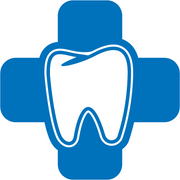
Brushing and flossing are crucial for minimizing the chances of developing cavities. However, sealants also significantly decrease the risk of tooth decay. Unfortunately, many dentists find that patients don’t know much about this procedure and the benefits it offers. If you’re considering moving forward with this process, this guide will help you make a decision.
4 Common Questions Dentists Get About Sealants
How do they work?
Dental sealants are comprised of a thin, plastic material that covers the top layer of the teeth. This creates a defensive barrier against food particles, acid, sugar, and other harmful bacteria that might otherwise lead to cavities and tooth decay.
Who can get sealants?
Children as young as six can receive sealants, and there isn’t an age limit on adults. The only requirements are that the person has their full set of mature teeth and they don’t have any untreated cavities, as brushing the sealant on top of pre-existing decay would only lock it in.
How are they applied?
 After a routine cleaning, your dentist will place the sealant on top of your teeth. They’ll start by brushing on an acidic mixture to add friction and make it easier for the sealant to adhere to the tooth. Next, they’ll apply the sealant and cure it with a blue light to set it in place.
After a routine cleaning, your dentist will place the sealant on top of your teeth. They’ll start by brushing on an acidic mixture to add friction and make it easier for the sealant to adhere to the tooth. Next, they’ll apply the sealant and cure it with a blue light to set it in place.
How do you care for them?
When properly cared for, sealants can last as long as 10 years. The key is to keep them clean—brush and floss twice a day, and maintain regular appointments with your dentist. Additionally, try to limit your consumption of acidic foods and drinks, as this will cause the sealant to wear away faster.
If you’re interested in dental sealants for your smile, turn to Patrick M. Pitts, DDS in Archdale, NC. This knowledgeable dentist maintains the highest levels of accreditation to ensure effective, reliable, helpful services for all their patients. Visit their website or call (336) 431-0002 to schedule an appointment today.
About the Business
Have a question? Ask the experts!
Send your question

